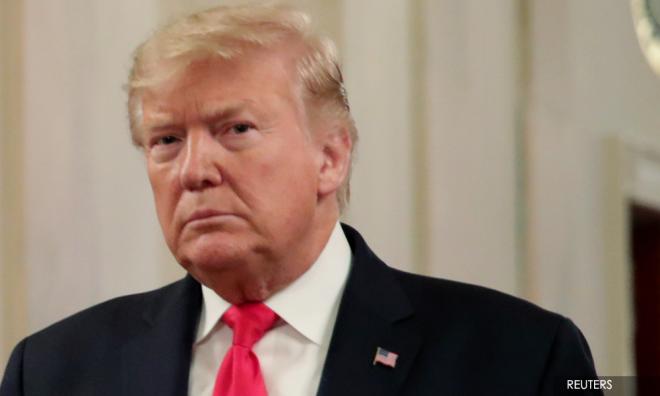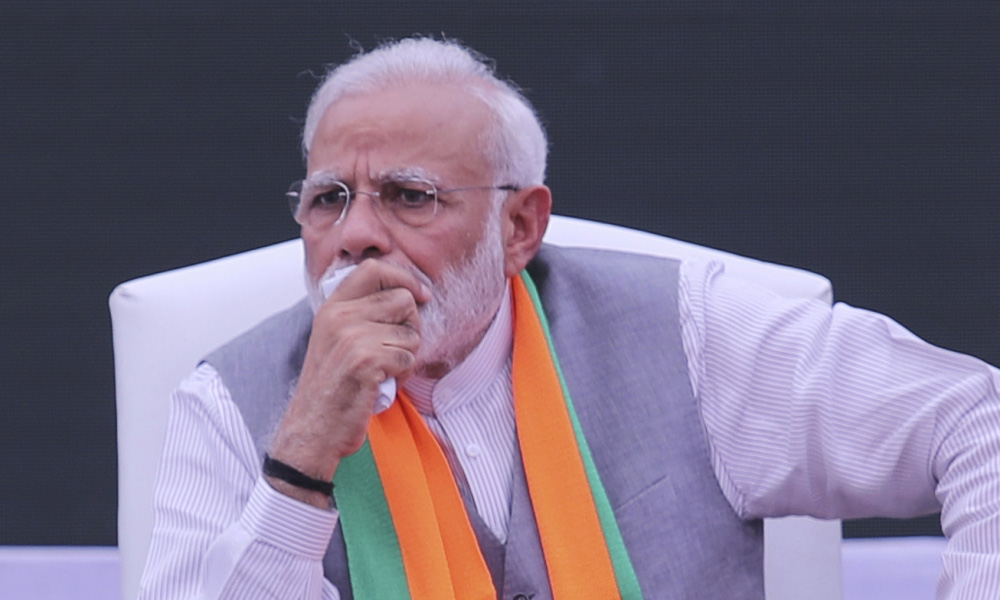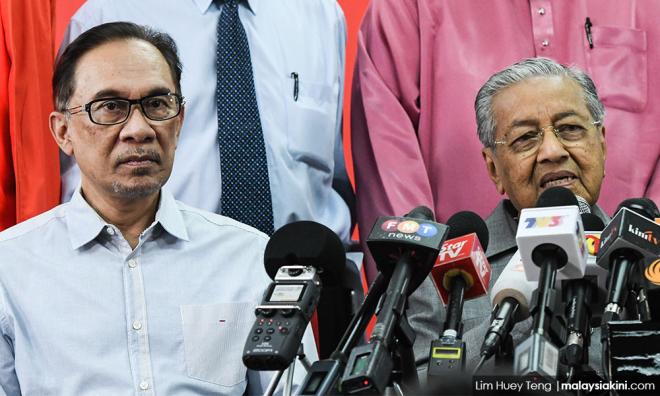
Published by Malaysiakini, The Star & Malay Mail, images from Malaysiakini.
It wasn’t so long ago that the US had censured (then) Gujarat chief minister Narendra Modi and even restricted Modi’s entry to its country. By the same token, it wasn’t so long ago that Donald Trump was a reality TV show host making guest appearances at professional wrestling events.
The two men’s fortunes have changed. Modi and Trump are now leaders of their countries, and each possessed of a maniacally committed voter base.
Trump and Modi have often been cited together as emblems of the rise of autocratic nationalism in hitherto secular democracies. Both have openly directed hostility towards their own minorities and neighbouring foreigners. And both dominate social media, bypassing traditional mediums of communication by speaking directly to their supporters and detractors alike via popular digital platforms.
Both have had checks on their tendencies towards autocratic rule, and both have reacted with disdain and disregard to any attempt at blocking their authoritarian use of power.
Trump was charged with impeachment by the House of Representatives in December, and acquitted by the Senate in January. Modi has lost three straight state elections in rapid-fire succession in Jharkhand, Maharashtra, and recently, New Delhi.
Trump, who famously hates travelling to any place devoid of his fawning fanbase, is planning a state visit to India on Feb 24 and 25, and Modi in turn is pulling out all stops to ensure a favourable reception, including signing a US$2.6 billion military helicopter purchase order, which is bound to be trumpeted as a great deal, while at the same time signalling China and Pakistan of a new strategic realignment in South Asia.
And yet, despite all the common ground these would-be autocrats undoubtedly share, there are some stark differences that set them apart. Trump, though no fan of Muslims, is an equal opportunity hater. It’s not so much ideology, as much as opportunism, that fuels the US president’s ire towards his many enemies, real or imagined: Mexicans, celebrities, political opponents and, most of all, the “Socialist Radical Left”.

Modi (above), by comparison, is a one-trick pony. His policy is driven by an ideology to disenfranchise and demoralise the sizeable Muslim minority in India, which has been laid bare in unilateral decrees of unprecedented speed and severity in a country that has overwhelmingly insisted upon its secularity since inception. What is particularly alarming to many is that there is no longer any attempt to mask this agenda.
Trump has shown himself to be an unabashed self-promoter, only endorsing an agenda that directly benefits himself and his cronies. He has no doubt prioritised his demonisation of Muslims, but Trumpism is more a response to the changing demographics of America than any one belief system.
Simply put, America is ‘browning’ and power is shifting away from the WASPS who always wield it. Republicans were enraged that a black man won the presidency on their watch, and the result of that fury is Donald J Trump.
Most other nationalist political movements – in France, Italy, Sweden, Great Britain, Hungary – are the result of similar shifts in demographics. In America, it’s immigrants, but in Europe it’s refugees.
Brexit was largely a knee-jerk reaction against the unfettered movement of labour across EU members. These demographic shifts have highlighted distinctions in culture, language, and religion which have ushered in the age of “identity politics” – a term which is familiar, and for the very same reason, to readers in Malaysia.
In India it’s different. Seventy-five percent of Indians are Hindu, and Muslims, Sikhs and Christians are indigenous Indians. Some were converted, others were brought in with colonialism, and still more fractured organically into syncretic communities.
The Aryans, who brought in the Vedic social system, were themselves migrants from the Central Asian steppes, which also permeated across Mesopotamia and Europe in ancient history.
The RSS wing of the BJP, which dictates Modi’s policy agenda to marginalise Muslims in particular, is an attempt to homogenise an ethnicity across an amazingly diverse diaspora, which only has one reference in recent history – that of Nazi Germany against its own Jews, an exercise that lives in infamy that ended badly for everyone concerned. The difference is the numbers: Ten million Jews versus 200 million Muslims. The world condemned the Holocaust that resulted from the National Socialist agenda, will it tolerate this?
Dr. Rais Hussin is President & CEO of EMIR Research, an independent think tank focused on strategic policy recommendations based on rigorous research.
Diterbitkan oleh Sinar Harian.
TIDAK lama dahulu, Amerika Syarikat (AS) mengecam tindakan Ketua Menteri Gujarat, Narendra Modi, malah menyekat Modi memasuki AS. Begitu juga dengan Donald Trump, tidak lama dahulu beliau muncul dalam rancangan realiti TV dengan membuat penampilan sebagai tetamu di dalam acara gusti profesional.
Namun, nasib kedua-dua orang ini telah berubah. Sekarang ini, Modi dan Trump telah menjadi ketua di negara masing-masing.
Trump dan Modi sering dilihat sebagai lambang kebangkitan semangat nasionalisme autokratik masa kini di negara demokrasi sekular. Kedua-duanya secara terbuka menindas golongan minoriti di negara mereka sendiri serta negara yang berdekatan. Dan kedua-duanya juga menguasai rangkaian media sosial, mengambil alih media komunikasi tradisional serta secara terus berinteraksi bersama penyokong dan pengkritik mereka melalui platform digital popular.
Pada masa yang sama, mereka telah memeriksa kecenderungan mereka sendiri terhadap pemerintahan autokratik, dan kedua-duanya tidak mempedulikan sebarang percubaan untuk menghalang penggunaan kuasa otoritet mereka.Trump berdepan dengan dakwaan untuk dipecat oleh Dewan Perwakilan pada Disember lepas, namun diselamatkan oleh Senat pada Januari 2020. Modi pula telah menerima tamparan hebat apabila kalah tiga pilihan raya negeri berturut-turut di Jharkhand, Maharashtra dan New Delhi.
Trump, yang terkenal dengan perangai tidak suka untuk berkunjung ke tempat yang tidak mempunyai peminatnya, merancang untuk melawat India pada 24 dan 25 Februari ini, dan Modi sudah tentu ingin menyambutnya seperti menatang minyak yang penuh, termasuk menandatangani pembelian helikopter bernilai RM10.76 bilion (AS$2.6 bilion), satu tawaran yang hebat, dan pada masa yang sama, memberi isyarat kepada China dan Pakistan mengenai penyusunan semula strategik baru di Selatan Asia.
Meskipun dua aktor autokrat ini mempunyai banyak persamaan, namun terdapat beberapa perbezaan antara dua pemimpin ini. Trump, walaupun tidak menyokong orang Islam, namun beliau memberikan peluang yang sama rata. Ia bukan ideologi, nampak lebih seperti pandai mengambil kesempatan, mengenai tindak balas Presiden AS ini terhadap musuh beliau, sama ada wujud atau hanya imaginasi beliau: iaitu rakyat Mexico, selebriti, pembangkang, dan yang paling utama, ‘Sosialis Radikal Kiri’.
IdeologiModi pula seorang yang hanya pakar dalam satu dimensi sahaja. Polisi beliau didorongi oleh ideologi untuk menyisih dan menindas golongan minoriti Muslim di India, yang sebelum ini tidak pernah berlaku, menjadi agenda utama beliau sebaik sahaja memegang tampuk pemerintahan. Yang membimbangkan, tiada usaha untuk mengatasi agenda ini.
Trump tanpa segan silu mempromosi dirinya sendiri, hanya menyokong agenda yang memberi manfaat kepada diri dan kroninya. Beliau juga tanpa ragu-ragu memomokkan orang Muslim, tetapi beliau lebih memberi fokus untuk mengubah demografi Amerika daripada mana-mana sistem yang ada.
Di India, 75 peratus rakyatnya merupakan orang Hindu, manakala Muslim, Sikh, serta Kristian merupakan orang asli India.
Sayap RSS BJP, yang bertanggungjawab menetapkan agenda polisi Modi, secara khususnya untuk menindas umat Islam, cuba untuk menyerupai etnik merentasi pelbagai diaspora, di mana hanya satu rujukan yang boleh diambil dalam sejarah-etnik Nazi Jerman yang menentang orang Yahudi mereka sendiri, satu usaha untuk membenarkan kekejaman dilakukan dengan buruk sekali kepada sesiapa yang terlibat.
Perbezaannya adalah jumlah orang yang terlibat; 10 juta orang Yahudi berbanding 200 juta umat Islam. Dunia mengutuk Holocaust yang terhasil daripada agenda Sosialis Nasional, adakah ia akan bertolak ansur dengan perkara ini?
Dr. Rais Hussin merupakan Presiden & CEO EMIR Research, sebuah organisasi pemikir bebas yang berfokuskan kepada pencernaan saranan-saranan dasar strategik berteraskan penyelidikan yang terperinci, konsisten dan menyeluruh.

